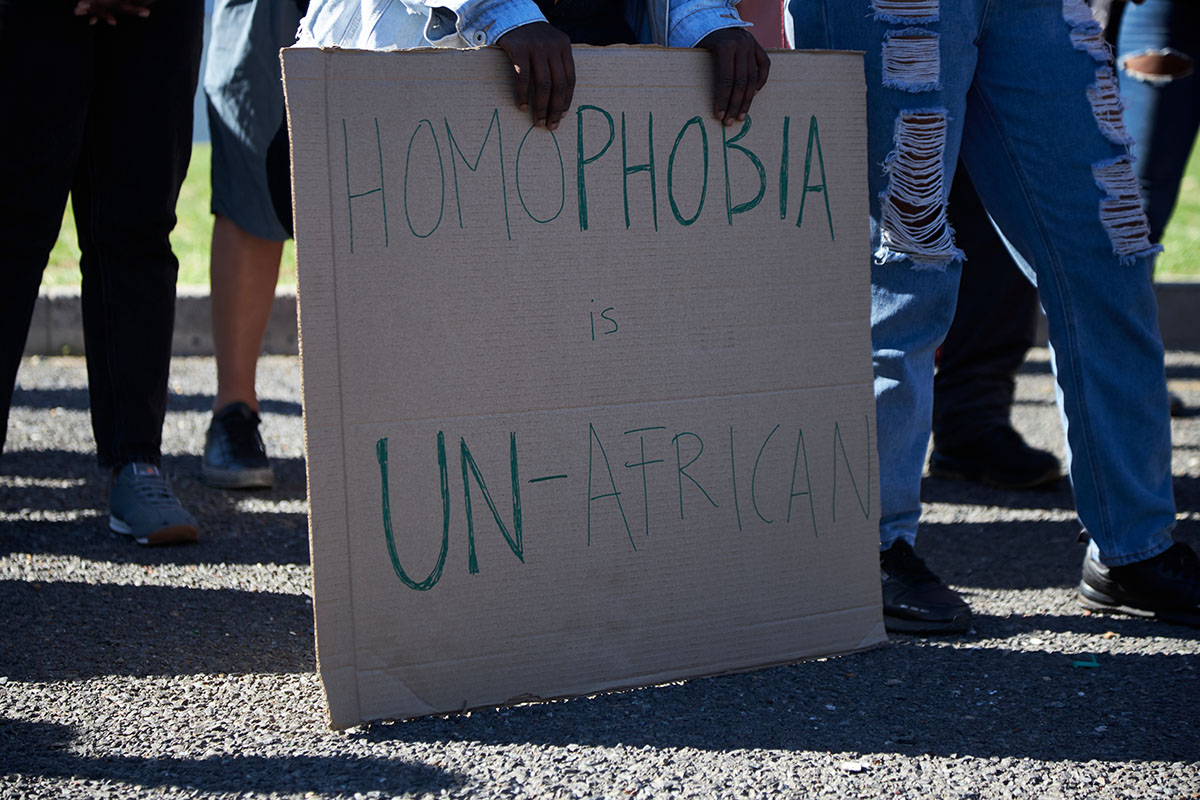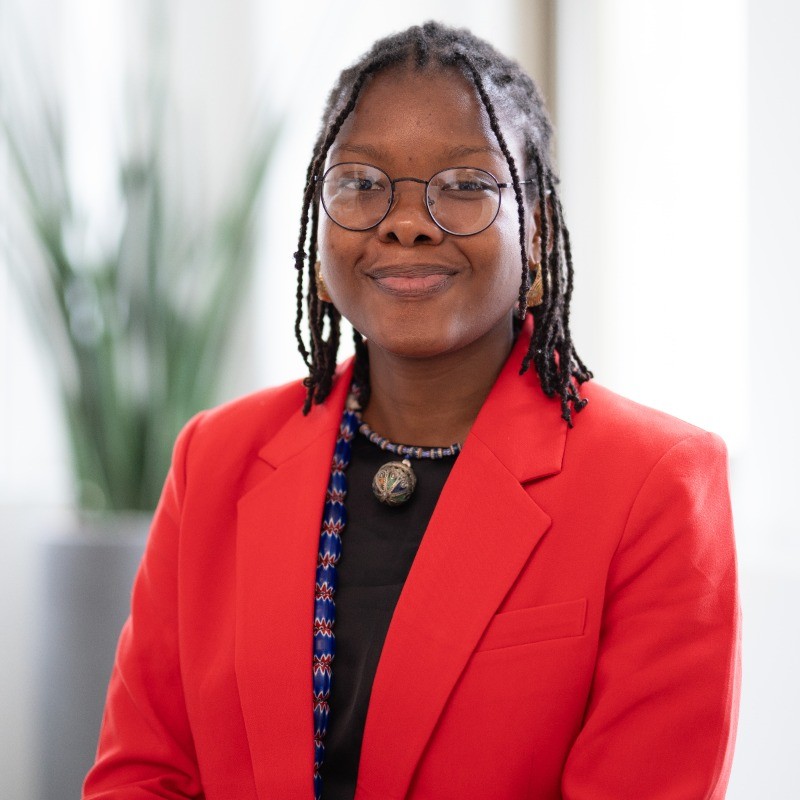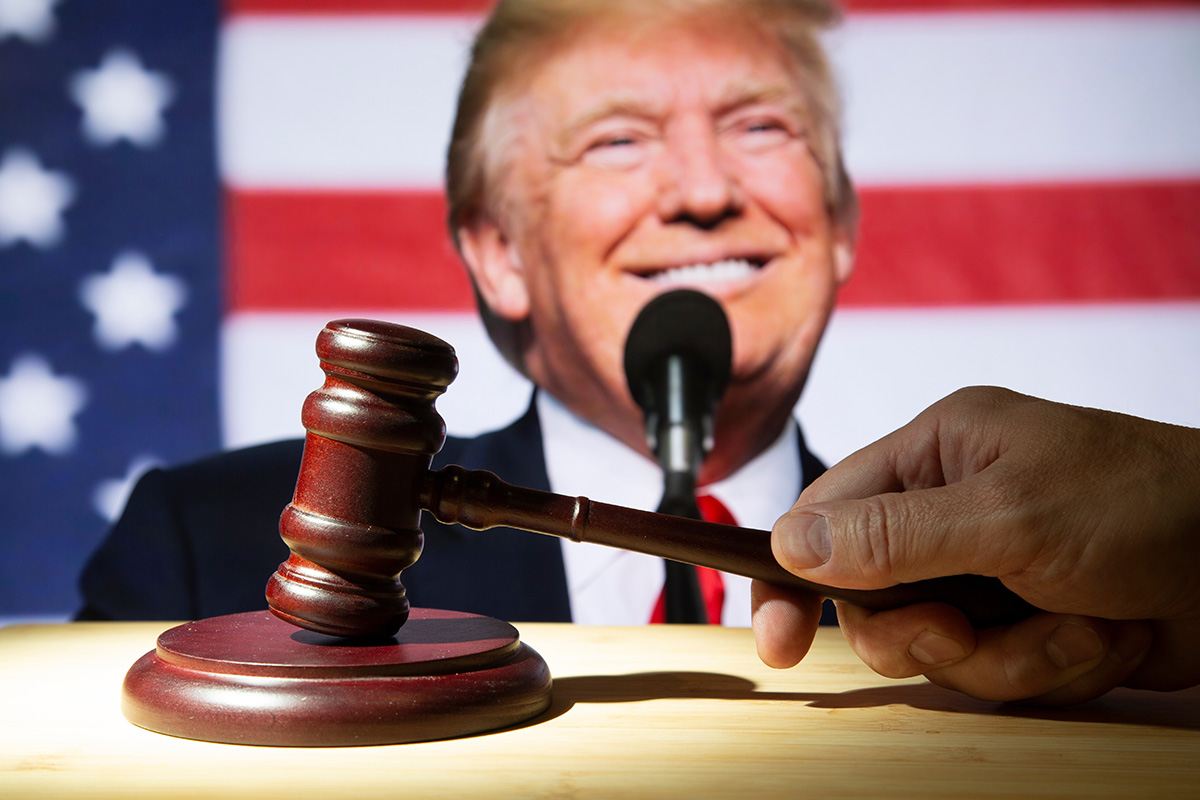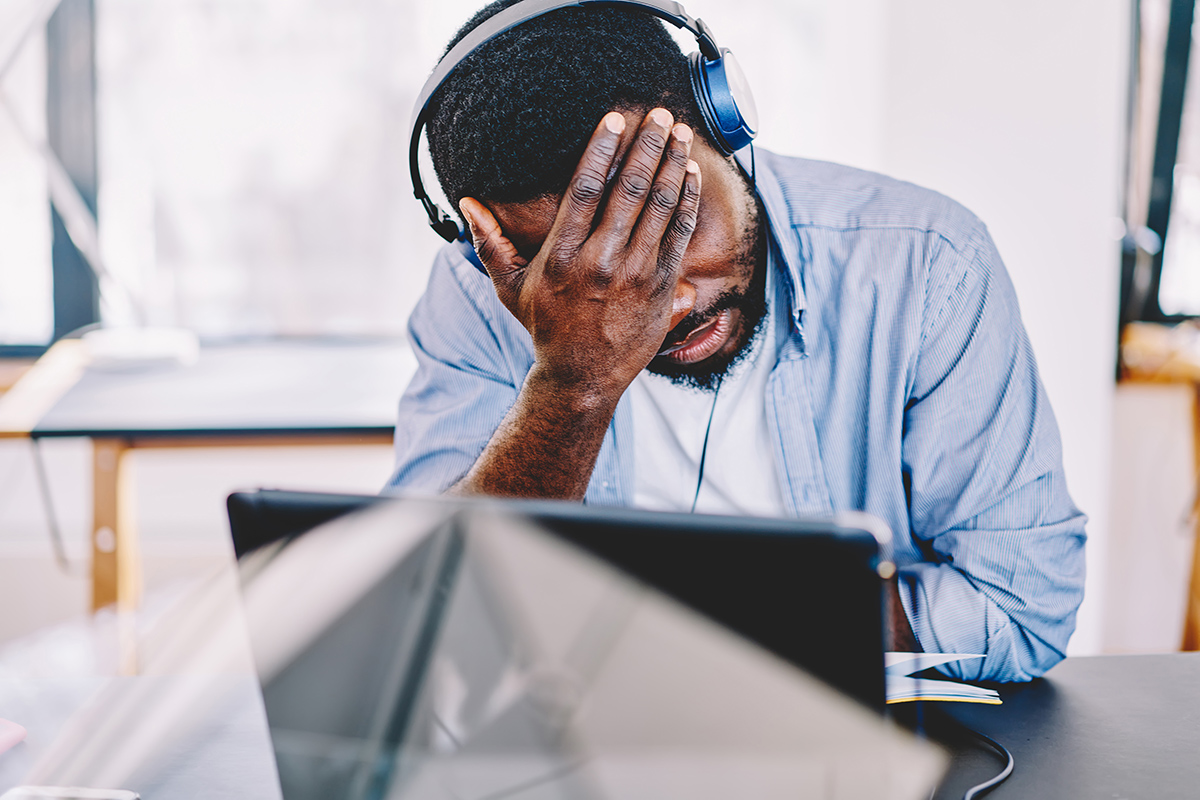Homophobia in Africa: A Colonial Construct and Its Legal Fabrication
August 27by Metolo Foyet
On the occasion of pride month, when time wore the colours of early June, an article by Monica Islam sparked a discussion about the evolving 2SLGBTQIA+ community and the controversies surrounding gender and sexuality in different cultural contexts. A notable incident occurred in Bangladesh, where references to the hijra community in grade 7 textbooks ignited debate. This issue resonates globally, particularly in Africa, where discussions about LGBTQ+ rights often clash with entrenched cultural and legal norms.
In the heart of that month’s fleeting dance, when summer was still a newborn dream, a divergent discussion followed up in a WhatsApp group chat where participants from diverse backgrounds shared their perspectives. One member highlighted Ghana’s nebulous LGBTQ situation, arguing that the country’s current anti-LGBTQ bill should not be passed since gender identity is such a sensitive and controversial issue, and that the community should be decriminalized. On whether children should be taught ABCD or LGBT in the classroom, another member voiced concerns about teaching children about LGBTQ+ topics, suggesting that such education and advanced concepts of gender should be reserved for a more mature age.
While I agree that foreign interference should not be welcome when it comes to respecting a nation’s sovereignty, that no nation’s family and traditional rights should be upheld over another’s, that no one’s ideas should have to be imposed on kids, and that decisions about what children learn should primarily rest with themselves and their parents rather than external influences, I also believe, like some of the participants, that it’s essential for children to be taught that everyone deserves equal treatment, regardless of their gender or sex. As was emphasized during the discussion, “homophobic bullying must be prevented in schools” and “kids should know that everyone is different in their own way yet equal.”
A common assumption that has been redundant in this sort of debate throughout the years among African communities is the misconception that the diversity embraced and defended by the 2SLGBTQIA+ community is incompatible with African culture; and therefore, should be excluded from the African society; implying that any African who identifies with this community should relocate to places where they are more accepted.
If humanity generally agrees that people should have the right to decide what’s best for themselves, why does it become unsettled when they choose to identify with the community of their choice? As believed by those who reject stern classifications and societal constructs, human identity is far more complex than the binary perspectives society often imposes. According to scholars, Africa’s legal bigotry is a colonial legacy, and the continent’s homophobic laws are a direct inheritance from that era. As a royal descendant and a direct Princess to the crown in the kingdom my ancestors hail from, I hold traditions in high regard, yet I also believe deeply in freedom. Freedom and tradition are not mutually exclusive, so far as both concepts are spoken of, perceived, interpreted and lived/experienced in different ways. Although not a member of the community under discussion, I approach this issue from a multifaceted analytical perspective:
The majority is not always right. Many 2SLGBTQIA+ individuals are citizens of the countries where they face oppression. If the will of the people truly matters, these individuals are no less important than the majority. In Ghana for example, until proven otherwise, none of those drafting and attempting to pass anti-LGBTQIA+ legislation belong to the targeted community. This is a clear flaw, and one could argue that just as foreigners are accused of violating sovereignty, national elites should be accused of violating human rights. Crafting laws about specific groups without including them in the legislative process is as oppressive as colonialism or the slave trade. The government’s role is to protect its people, not to seek shortcuts that make its job easier. If leaders cannot find a way to protect all their citizens, regardless of their personal views, they should step down and allow others who are capable of finding solutions to take over.
The idea that homosexuality is foreign to Africa omits a critical fact: before European colonization, many African societies had fluid understandings of gender and sexuality. Homosexuality was very well existent in African societies, although not specifically termed as such then.
Indigenous forms of same-sex desire were sprinkled across the continent, though they varied greatly and existed in differing social conditions, lexicalized in different languages and accorded different degrees of tolerance and visibility. There was no uniformity in how these practices were perceived or treated, and the people who sought to erase these long-standing aspects of African societies were the colonizers, who, at the time, couldn’t comprehend or accept these indigenous phenomena that had been integrated for centuries. If the agenda of Westerners is allegedly to impose homosexuality on other cultures, this ambition either reveals an ignorance or conceals an awareness of the fact that their ancestors were responsible for banning it during colonization through the promotion of a harmful narrative.
As applied to any other cultural reality and agency that was not understood, these gender fluid expressions were depicted and branded as barbaric and satanic, among other derogatory labels. Colonial powers imposed their own rigid, moralistic views on these societies, via the introduction of colonial legal systems. The latter, influenced by Victorian-era morality, criminalized homosexuality which was, in native lands, previously either accepted or treated with indifference. As a result, the anti-LGBTQ+ laws that persist in many African countries today are legacies of colonial rule, rather than indigenous traditions.
Anthropological evidence shows that diverse sexual orientations existed across various African cultures and other indigenous cultures worldwide, throughout history and long before colonial influence.
As highlighted in Murray’s and Roscoe’s book “Boy-Wives and Female Husbands”, when natives like Evans Pritchard’s Zande informants told Europeans that same-sex relationships were accepted in their communities, << Europeans were shocked, incredulous, and confused >>. Accordingly, it appears the west has been disarrayed throughout its contemporary queer narrative. Today, the same Western countries that once condemned these practices now advocate for LGBTQ+ rights, often clashing with the laws their ancestors helped to establish. In the debate about LGBTQ+ rights in Africa, it is crucial for Africans to be critical thinkers, and slow down the importation of so-called external ideologies that are not so much imported after all; and instead, draw on the continent’s rich ancestral heritage. LGBTQ+ bills in Africa should involve the affected communities in their design, ensuring that the laws are fair, inclusive, and reflective of Africa’s complex history. If an African nation chooses to recognize 2SLGBTQIA+ rights, it should do so not in response to external pressure or as part of a trend, but after carefully studying and understanding its own history. This decision should be made unapologetically, as a deliberate effort to acknowledge and redress historical wrongs—as a significant moral act and a meaningful step toward social progress rooted in historical justice and memory.
The following podcasts on the “Góor-jigéen” or “men-women” in the Senegalese society further discusses the colonial roots and European origins of today’s homophobia in Africa, where the laws that punish same-sex relationships come from, and the impact of colonialism on sexual diversity and education. Among the Zande people of the Congo and South Sudan, it was common for warriors to take younger male partners, known as boy-wives. Documented by anthropologist Evans-Pritchard in the early 20th century, these relationships were often temporary but socially recognized, and the younger partners would later marry women and have families.
According to historical records, the Kikuyu people of Kenya recognized mashoga, men who engaged in same-sex relationships and often adopted female roles within the community. This term is still used in some Swahili-speaking communities today. Other examples are the Kitesha or male-transvestite roles among the African Bala. In some other pre-colonial accounts, some scholars interpret certain ancient Egyptian texts as evidence of same-sex relationships. The story of King Neferkare and his general Sasenet, described in the Chester Beatty Papyrus, is sometimes cited as an early reference to a homosexual relationship, though interpretations vary. In Yoruba spiritual practices, certain deities (Orishas) are associated with non-heteronormative identities. For instance, African Shango priests are depicted as transvestites, wearing female clothing and doing their hair in a female fashion, when on “the god’s business; thus enabling them to defy sexual distinction and the roles prescribed by it.
That said, my current stance—acknowledging that human perspectives evolve and this position might change in the near or distant future—in the debate initiated by Monica during that month when the leaves were just beginning to whisper, is fivefold:
- The LGBTQ controversy serves as an opportunity for Africans to pause and reconsider the adoption of external ideologies, encouraging a deeper engagement with their ancestral heritage.
- LGBTQ legislation in Africa should include the active involvement of LGBTQ individuals in the drafting process to ensure their perspectives are considered. Failing to engage them in the design of bills that are going to affect them would make parliamentarians or legislators no different from colonizers.
- The notion that some people must leave their country of birth because of their sexual orientation sounds deeply flawed. One can’t demand that someone leave their homeland simply because they disagree with the person’s sexual orientation. If that path is started down, it raises the question: should anyone who falls short of others’ moral standards also be asked to leave? Does this make them any less of a citizen or less human? All citizens, regardless of their sexual identity, deserve equal rights and protection under the law. This is not just a matter of human rights but of historical justice, as many of Africa’s homophobic laws are colonial relics that need to be re-examined and redressed. Moreover, morality is subjective and varies widely across different cultures, geographical regions, and individual perspectives.
- When it comes to children, LGBTQ bills in Africa should not merely replicate existing models. They can be crafted to protect both children and their future right to make their own sexual choices as adults. It’s important to recognize that children are capable of thoughtful reflection. If there are concerns about their well-being, involve them in the conversation. Give them a voice and let their perspectives be part of the discussion.
- As Cheick Anta Diop unapologetically repeated, ancient Africa was a hub of creative brilliance. Molded in this pot of creative genius, Africans should leverage their inherited authenticity to create legislation that is fair, inclusive, sustainable and respectful of everyone’s rights. It might seem idealistic to think this is achievable, but the real barrier is not the possibility; but (1) the reluctance to engage in challenging, uncomfortable conversations and (2) the disconnection of Africans from their own traditions.
In conclusion, it is curious that so much concern is focused on the private lives of individuals. Rather than being preoccupied with what happens in people’s bedrooms, African societies and authorities should prioritize revising and implementing legal frameworks that protect all citizens, embracing the diversity that has always existed on the continent, and resolving pressing issues like impunity and resource mismanagement.






